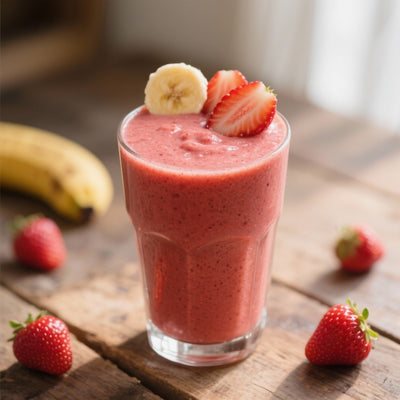The Hidden Danger of Green Juices: How 91% of Them Cause Harmful Blood Sugar Spikes
Green juices, often perceived as health elixirs, have become essential for well-being. Promising energy, detoxification, and radiant skin, they are attracting a growing number of followers. However, behind this virtuous image lies a potentially worrying reality: a study reveals that 91% of green juices available on the market can cause dangerous spikes in blood sugar. What we take for a healthy habit can turn into a trap for our metabolism.
In this article, we'll delve into this paradox. We'll dissect the ingredients hidden behind the labels, the mechanisms by which these juices affect our blood sugar, and most importantly, how to make informed choices to truly reap the benefits of green juices without compromising our health. Prepare to rethink your habits and discover the secrets to genuinely beneficial green juice consumption.
The Green Juice Paradox: Health or Metabolic Sabotage?
The idea behind green juice is simple: to concentrate the nutrients of green vegetables into an easy-to-drink beverage. Rich in vitamins, minerals, and antioxidants, they seem like the ideal way to meet our daily vegetable quotas. The problem lies in how these juices are often prepared and consumed.
Adding fruit to sweeten the taste is a common practice, but this is where the trap closes. Fruits, even those considered healthy, contain fructose, a sugar that, in excess, can overload the liver and disrupt blood sugar levels. Furthermore, the juicing process extracts fiber, which is essential for slowing sugar absorption and stabilizing blood sugar.
Why are blood sugar spikes dangerous?
A blood sugar spike occurs when blood sugar levels rise rapidly after consuming carbohydrate-rich foods. To counteract this spike, the pancreas releases insulin, a hormone that allows glucose to enter cells to be used as energy. Repeated blood sugar spikes can lead to insulin resistance, a prediabetic condition that can eventually progress to type 2 diabetes.
The consequences don't stop there. Blood sugar spikes can also cause cravings, fatigue, mood swings, and even contribute to chronic inflammation, a major risk factor for many diseases.
The Insidious Role of Fructose
Fructose, found in high quantities in many fruits used in green juices (apples, bananas, mangoes, etc.), is metabolized differently than glucose. Unlike glucose, which can be used directly by cells, fructose is primarily metabolized by the liver. In excess, it can lead to liver overload, fat accumulation in the liver (non-alcoholic fatty liver disease), and insulin resistance.
"Fructose is the sugar that makes you gain the most weight." - Dr. Robert Lustig, Endocrinologist and Professor at the University of California, San Francisco.
How to Choose (or Prepare) a Truly Healthy Green Juice
Fortunately, it's possible to enjoy the benefits of green juices without experiencing their negative effects on blood sugar. Here are some key tips:
- Favor green vegetables: The base of your juice should consist of dark leafy green vegetables (spinach, kale, romaine lettuce), cucumber, celery, and aromatic herbs (parsley, coriander).
- Limit the addition of fruit: If you need to sweeten the taste, use a small amount of low glycemic index fruit (berries, lime, avocado).
- Add healthy fats: A tablespoon of coconut oil, avocado, or chia seeds can help slow sugar absorption and stabilize blood sugar.
- Do not filter your juice: Consume your juice with the pulp to benefit from the fibers, which help regulate blood sugar.
- Consume your juice with a meal: Consuming it with a meal containing protein and fat can also help stabilize blood sugar.
Alternatives and Supplements for Optimal Health
If you are particularly prone to blood sugar spikes, you might consider alternatives to green juices, such as green smoothies (which retain fiber) or eating whole green vegetables. Supplementing your diet with ingredients like berberine or chromium may also help improve insulin sensitivity and stabilize blood sugar. Always consult a healthcare professional before taking any supplements.
Take Back Control of Your Blood Sugar with Informed Choices
Green juices aren't inherently bad for your health, but their composition and how you consume them can significantly impact your blood sugar levels. By being aware of the potential risks and making informed choices, you can enjoy their benefits without compromising your metabolic health. Remember: the key is balance and moderation.











